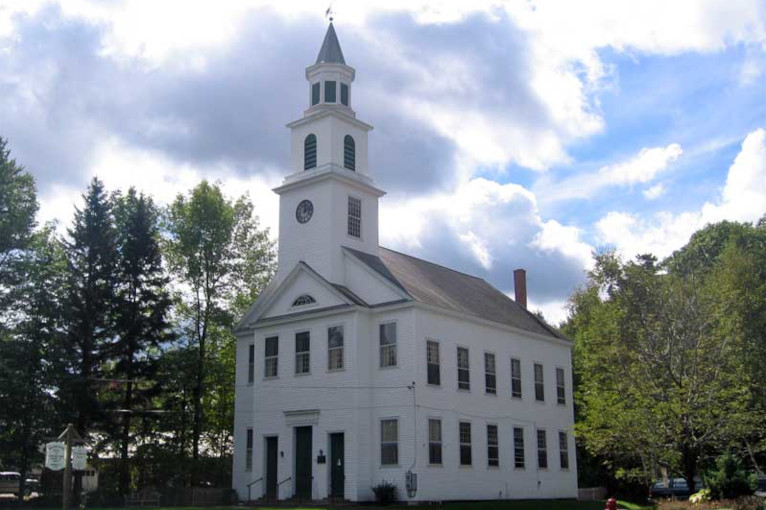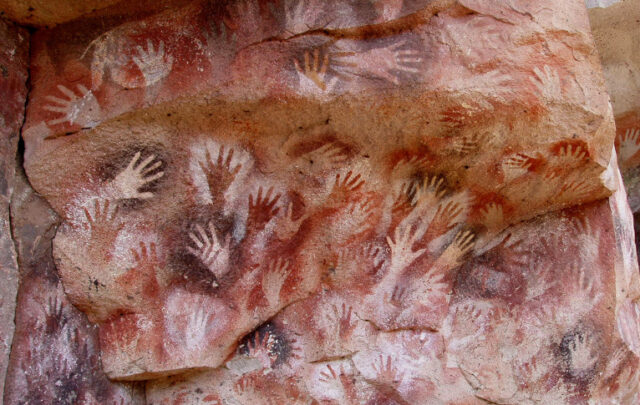In Vermont, spring is the season of governance. Town Meetings happen in early March. These are usually followed by referenda and voting sessions to approve or shoot down the the more complicated ideas debated in the Meetings. Voting in many towns is often centered on school budgets, though there is also discussion of what to do with community property such as our town forests and public-owned buildings. In the May Statehouse, legislators frantically tidy up their messes before their break which last more than half the year. With a Democrat legislature and a Republican (though barely) governor, this involves extra voting to override vetoes and clarify language on points of contention like what exactly is meant by ‘housing’. But this is all smoothed out and concluded before Memorial Day, and then Vermonters go back to daily living.
This is how direct democracy works. There are brief interludes of governing, creating the spaces and structures to enable humans to live in close proximity without treading on each others’ toes, and then we go about our business for most of the year, unimpeded by governing. There are regulatory bodies for public goods and, to a lesser extent, for private business interests, but mostly we vote on rules in the spring and then follow them without much direction for the rest of the year. Certainly, there is nothing like a centralized government in Vermont. Our legislators don’t even work as such for most of the year, and the administrative branch seems largely occupied with producing solemn statements on the state of the world. To me it seems that the governor is elected to be the face Vermont presents to the wider world — because Vermonters largely can’t be bothered with the wider world.
I lived in Massachusetts for a few years before settling here in Vermont. For those of you who live elsewhere than New England, Massachusetts shares a border with Vermont. These two states are relatively small, adjacent geographic areas. But while there are plenty of Massachusetts license plates on cars tooling about Vermont, the opposite is not true at all. You hardly see a Vermonter outside of Vermont, and I never saw a Vermont green license plate in the town where I lived in Massachusetts — which is less than a leisurely hour’s drive from Vermont. This is partly due to a lack of funds. The bigger states to the south and west of Vermont, with their brahmins and bankers, are not cheap places to visit. (Or live in…) And Vermonters are not wealthy. A trip to Boston is more expense than most are able — or willing — to shell out for a weekend (except for Red Sox games). But there is also a strong tendency to ask: why bother? We have everything we need right here. Without the traffic and the noise and the weird food. Vermont is a whole world unto itself.
This is all to say that Vermonters are unusually insular within American culture (this notwithstanding…). Most of the people who live here have local ancestry that goes back several generations. There are many family lines that are older than Vermont. It is not too unusual to know someone whose native language is French, and even older languages are finding new life among the people who lived here before any European language was heard on this side of the Atlantic. These are grounded people. They know their lands; they know their neighbors; they know their stories. Most Vermonters do not much care about what goes on elsewhere because elsewhere is irrelevant to life here. In fact, in many ways, elsewhere is downright impossible. What works for a bigger, richer, and warmer flatland community does not work for Vermont.
I am not a native Vermonter. My gaze is still occasionally caught up in distractions from the outside. But even in the short amount of time that I’ve lived here, I am already finding that those distractions can’t hold my attention for long. There just isn’t much in those stories from the wider world that applies to me, that affects me, that interests me. I am, as Wes Jackson says, ‘becoming native to this place’, developing an inward-facing life that is primarily concerned with the realities of living here. It is becoming harder and harder to muster the time and energy to read the national news, for example. I graze through the headlines now, a practice that would have embarrassed me not too many years ago. When I do read, I tend to choose those stories that are most like my own experiences here, about real communities doing the real work of being real humans together.
And let me assure you these real communities are far more prevalent than you might imagine if all you knew came from mediated sources. Vermont living is maybe not the dominant form of organization in the atomized United States, but it is — still — how most people in the rest of the world live, even in these hyper-connected, globalized times. For most people, life is lived locally, and the outside world is largely entertainment.
I was thinking about this as I was plodding through the list of ‘should reads’. Increasingly, this is a chore that I ignore for most of the week and then force myself to tackle when I have a quiet morning. Of course, this staccato engagement only heightens the sense of unreality in whatever I am reading. It becomes a series of static snapshots that are already fading into some remote past that has little to do with me. Only a few things capture my attention, and most of those are related to community-building, food, and gardening. But sometimes something more abstract will pull me in.
A few weeks ago it was an article from Dave Pollard’s How to Save the World newsletter. This one talked about having alternative forms of government lying about, so that when this system — that is already riddled with fatal wounds — finally collapses, there will be other ways of being ready to fill the breach. Pollard talked about the Occupy movement’s direct democracy and citizen assemblies as being the logical next step. I have seen many others making similar assertions, and I can’t help but think that maybe they need to look at Vermont — because this is how direct democracy survives for longer than a season.
I have said before that there are good things and bad things about this system of mostly self-governance (or perhaps non-governance?… semi-governed anarchy, perhaps?). But one of main problems with participatory democracy is that it does not scale up. You can’t do Vermont communities in places that are bigger than Vermont communities. You probably can’t do Vermont in places that are more diverse than Vermont either, but the small size of a functional community tends to moderate diversity. So there may not be functional communities that are more diverse than Vermont. When you’re related to everyone around you in ways that matter — food-ways and culture, school, family, business and trade, interests and hobbies — you tend to grow similar to everyone around you, regardless of the divisions that dominate discussions of diversity these days. Diversity is not a notable trait in small communities not just because difference is inhibited — though that is a big problem — but also because kinship is enhanced. Luckily, Vermont started out with a very interesting mix of human stories — very colorful stories — but that is not always true. My experience with Midwestern small towns was vastly different, because I was different and could not find a way to wedge my difference into their homogeneity.
In any case, Vermont governing is a better model than the ephemeral Occupation of Wall Street — both to see what works and what doesn’t. And what absolutely doesn’t work is having to spend hours every day on governance and debate. I am no expert on the Occupy phenomenon, but I’ve been around intentional communities all my life, from co-housing to large communities organized around religion. I am drawn to the simple order of a monastic community and probably would have been happy if I’d spent my life as a monk (except that I find the basic tenets of most faiths rather unsavory). So I am accidentally expert on forms of self-governance within a small community, and in my experience these sorts of communities always break down quickly when governance becomes a daily task. The more time spent on discussing how to live together, the less time remains to actually do that living — and the more opportunities for grievances over who is doing the work to develop… Communities work together when they don’t talk much about how they work together. This often means having some central organizing principle, but it doesn’t have to be faith-driven. It could just be like Vermont — we’re all intent on building a good life. And a good life takes surprisingly little governance.
Well, surprisingly little to those who talk about governance, anyway. That living a good life doesn’t take much governance isn’t really a surprise to those who make their lives in this fashion. Who has time for debate when there is bread to bake, cows to milk, maple sap to boil, sunsets to watch, weather to discuss? (Never mind all the snow shoveling…) But the people who live these lives do not talk much about living these lives. On the other hand, the people who do talk about how to get to good governance generally are not living these lives. They don’t have much practical experience with sustained community lived in the real world.
Most of the people who talk about anything, governance included, on broad platforms — the people that have a national or global voice — are from the kinds of large scale, highly segregated and strictly hierarchical worlds that are anathema to real community. Real community is small. It’s human scale. Real community is interwoven and interdependent where everything and everyone works together. And there isn’t much focus on how it all works. It’s just done. Real community is generally anarchic. Leaders may exist — Vermont has a Governor ensconced in a gold-domed Statehouse — but they are mostly figureheads. In many small, human scale communities, leaders are deemed useless objects of general ridicule. Think of the pompous bluster-butt of a mayor that presides at the pub and occasionally gets to cut the ribbon and make vacuous speeches at dedication ceremonies. That is real leadership…
Pollard did say, repeatedly, that the scale of human organization must be small and local, not large and centralized, ruled from the neighborhood, not from a distant capital. But I’m not sure he fully comprehends just what that means. His view of a participatory democracy includes large cities, rather unmanageably large population centers. It includes large-scale, top-down directed projects like AI and technology internets. It includes leaders. His ideas are more in line with talk of organizing than actual lived organization. This is probably because he does not actually live in a community that is organized at human scale to meet human needs directly. His view of the world is, in actuality, top down, with little direct intercourse between his daily life and the ways his daily needs are met — and he does not do that work himself. Note that he references the evanescent Occupy, but not the durable Vermont. Nor any other community in this, the dominant form of human organization on this planet.
The people who have platforms and give us all our mediated ideas do not live in community. They live above it. They are leaders and believe that leadership is necessary — for if not, then they are not. They also do not want us to live in community because then we have no need for leaders — no need for them. Not only do we not need them, we don’t have any reason to support them and keep their needs met while they blather on about forms of leadership. If we all lived by Vermont folkways, then there wouldn’t be much governance, never mind a whole class of humans dedicated to discussing it. So it may be that they don’t want us to see this good life, they don’t want us to have this good life — because if we do, then they don’t.
Hence, there is very little said in widely distributed media about small functional communities like Vermont, like most of the world. The only time these ‘alternative’ styles of organization make news is when they are not working, either failing like Occupy or causing misery like just about any community organized around dominance and hierarchies of privilege — ie organized around leadership. Note that name also! Alternative, when small, human scale, interdependent communities are the norm for humanity… and this global hierarchical monstrosity that controls all imaging and ideation is the true outlier.
Brian Lloyd has a new proposal. Like Pollard, he admires the Occupy movement and its capacity for living the good life in egalitarian, truly democratic, fashion. But where Occupy was largely theatre, meant to contrast to the oligarchic places they chose to occupy, thereby highlighting the ugliness in things like Wall Street, Lloyd would like us to Occupy the Hearth. He proposes a sort of debt jubilee combined with property transfer so that the place you occupy becomes yours, no rent or mortgage to put wage-earning burdens on your life. And the path he suggests to get us there is to elect a fictional character, a place-holder named Robin99, that represents not our voices in national politics, but our resignation from national politics. Once a significant proportion of the people in this country believe in this path enough to ‘elect’ Robin, then there are enough people to support and defend each other in the occupation of their homes. Lloyd envisions a carnival of street parties and fairs that would build the popularity of this candidate and that would likely continue as the central core to organizing life once we’ve occupied our places — once we’re allowed the freedom from wage-earning that enables us to focus on living.
I think this plan is brilliant. More community. More local living. More parties. Yes, please! Even in Vermont there is a need to cast off the rentier class so we can rededicate all the resources funneled upward to them back into building our own lives. There is just one problem. And it took the ‘focus group’ of my two millennial sons to point it out. The people who would be most inclined to support this do not have a hearth to occupy. My second son is very typical in living arrangement. He rents two rooms. There is a kitchen, which is better than many. But he has no access to any further space, space that is necessary to produce and store his own needs. Also, he does not want to be in those two rooms for the rest of his life. How would he even have a life? A family? He does not want to occupy his current space, and I suspect most people his age are the same. So what hearths are they going to occupy?
Perhaps this can be worked out. And perhaps this is a path toward moving people like my son out of unsustainable living situations. But I don’t know how that would happen. Because a further complication is that many of those who do live in sustainable homes — places where there is the capability of meeting needs — are members of the rentier class. They own the hearths and they’re not likely to just give them away even if a majority of the people in this country vote to do just that. (Which vote I believe is entirely possible, given the distribution of wealth in this country.) The people who own the hearths are not part of the 99% and most will not be voting for Robin. Even if they don’t own property that earns them income, they still probably aren’t interested in watching the value of the property they do own plummet when property becomes the home, the place you occupy, the place you build lives not wealth.
So there are problems with the occupation. But I think the path to that occupation — more community, more local living, more parties, and less of the centralized outside forms of governance that we call normal — that is also the path to building resilience wherever you are. And the more resilient and self-contained a community, the less it is willing to take direction from outsiders, the less it needs outsiders. A carnival takes work, but in those that succeed and persist, everyone chips in. There are no leaders who do no work. There are rules for getting by without stepping on other toes, but most of the carnival is the carnival. It is lived. Organic organization.
This is how Vermont works. And maybe that’s why I love the idea so much. But it’s also how New Mexico works. And most real neighborhoods, like my son’s home in Brooklyn. And, really, it’s how most of the world works. So I don’t think it’s a naive fantasy — as many who want to preserve their privilege often characterize plans for shrugging off the burden of their leadership. It works. Living works. It works much better for all of us than the system we call normal.
So let’s make Vermont everywhere. And Brooklyn. And Albuquerque. Let’s occupy our own lives wherever we are. And maybe, when we stop supporting the overburden, we can all work out how to build that hearth.
©Elizabeth Anker 2023
Teaser photo credit: Vermont towns hold a March town meeting for voters to approve the town’s budget and decide other matters. Marlboro voters meet in this building. https://commons.wikimedia.org/wiki/File:Meeting_house_marlboro_vermont_20040911.jpg#/media/File:Meeting_house_marlboro_vermont_20040911.jpg





